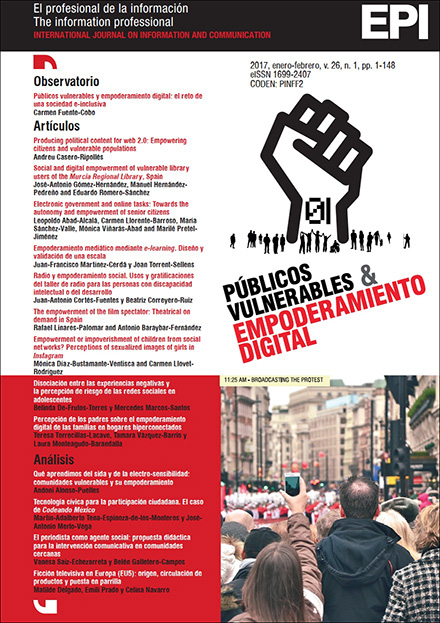The perception of parents about the digital empowerment of family in hyperconnected households
DOI:
https://doi.org/10.3145/epi.2017.ene.10Keywords:
New technologies, Digital services, Internet, Media education, Families, Parental mediation, Media literacy, Media.Abstract
In this article we disseminate the results of a qualitative research project aimed at studying the household as a multi-device communication setting in which both children and parents are involved in a digital environment where parents act as mediators in the use of digital services by minors. The methodology used was the so-called "discussion group" technique, that involved parents whose children attend school in the Autonomous Region of Madrid. The results show that these households are hyper-connected settings that offer early access and intense use of IT devices in which both parents and children have equal access to technology but use it in different ways. In these households, technology facilitates family cohesion as a result of the emergence of new forms of digital communication, and in which certain mediation occurs as parents take measures to control the use and exposure to technology by minors.
Downloads
Downloads
Published
How to Cite
Issue
Section
License
Dissemination conditions of the articles once they are published
Authors can freely disseminate their articles on websites, social networks and repositories
However, the following conditions must be respected:
- Only the editorial version should be made public. Please do not publish preprints, postprints or proofs.
- Along with this copy, a specific mention of the publication in which the text has appeared must be included, also adding a clickable link to the URL: http://www.profesionaldelainformacion.com
- Only the final editorial version should be made public. Please do not publish preprints, postprints or proofs.
- Along with that copy, a specific mention of the publication in which the text has appeared must be included, also adding a clickable link to the URL: http://revista.profesionaldelainformacion.com
Profesional de la información journal offers the articles in open access with a Creative Commons BY license.




